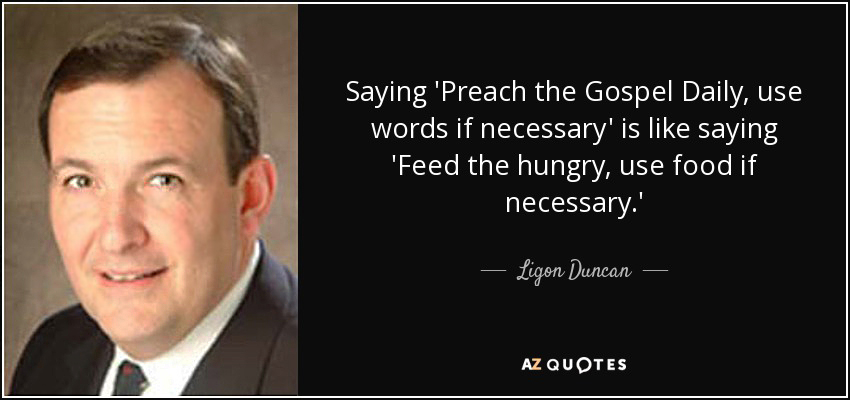The famous first quote above has been attributed to St. Francis of Assisi, but I thought that I should mention that it was, in all likelihood, written by someone else (at least that seems to be the consensus of the Roman Catholic Church). Here's an article about it (from a publication called,
The National Catholic Register) if anyone is interested (this article is from 2015, but I found what it seemed to admonish, the need for Roman Catholics to begin to become more evangelical, quite interesting, because I have never known them to be).
What St. Francis of Assisi Didn’t Actually Say
Albert Chevallier Tayler, "St Francis" (1898) (photo: Public Domain)
Glenn Stanton Blogs October 30, 2015
Last Sunday, our faithful deacon in the midst of his excellent homily used a quote that most of us have heard, perhaps many times.
“Preach the Gospel at all times. Use words if necessary.”
It is always attributed to St. Francis of Assisi—founder of the Franciscan Order—and is intended to say that proclaiming the Gospel by example is more virtuous than actually proclaiming it with voice. It is a quote that has often rankled me because it seems to create a useless dichotomy between speech and action. Besides, the spirit behind it can be a little arrogant—which I’m sure our deacon didn’t intend—intimating that those who "practice the Gospel" are in reality more faithful to the faith than those who preach it.
But here's the fact: Our good Francis never said it or anything close.
None of his disciples or biographers have these very quotable words coming from his mouth. It doesn't show up in any of his writings. Not even close, really. The closest comes from his Rule of 1221 on how the Franciscans should practice their preaching:
No brother should preach contrary to the form and regulations of the holy Church nor unless he has been permitted by his minister . . . All the Friars . . . should preach by their deeds.
Essentially, make sure your deeds match your words. While there's a nice and good sentiment in the statement—be sure you live out the grace and truth of the Gospel—the notion as it is typically presented is neither practical, nor faithful to the Gospel of Christ.
It does not align with St. Francis' own practice.
His first biographer, Thomas of Celano, writing just three years after Francis' death, quotes him instructing his co-workers in the Gospel thusly:
The preacher must first draw from secret prayers what he will later pour out in holy sermons; he must first grow hot within before he speaks words that are in themselves cold.
Our man clearly spent a great deal of time using his words when he preached, “sometimes preaching in up to five villages a day, often outdoors. In the country, Francis often spoke from a bale of straw or a granary doorway. In town, he would climb on a box or up steps in a public building. He preached to . . . any who gathered to hear the strange but fiery little preacher from Assisi.” He was sometimes so animated and passionate in his delivery that “his feet moved as if he were dancing.”
We must know that it's simply impossible to proclaim the Gospel without words and of course our good Francis knew this as well as any. The Gospel is inherently verbal, and preaching the Gospel is inherently verbal behavior.
St. Paul was quite clear in this, asking the Church at Rome (Romans 10:14):
How then will they call on Him in whom they have not believed? How will they believe in Him whom they have not heard? And how will they hear without a preacher?
The New Evangelization is not a silent evangelization. So next time you hear one of your brothers or sisters in Christ use this quote to encourage or challenge you in the labors for our faith, gently guide them from the land of misinformation and into truth.
~https://www.ncregister.com/blog/what-st-francis-of-assisi-didn-t-actually-say
God bless you!!
--Papa Smurf
Romans 10
17 Faith comes from hearing, and hearing by the word of Christ.

 I still have a couple of replies to make and would love to hear more from you, but I also think that I'd like to move the thread in the direction of application now, you know, "rubber meeting the road" witnessing, evangelism, and/or apologetics, perhaps with a bit of emphasis on what has worked for you and why.
I still have a couple of replies to make and would love to hear more from you, but I also think that I'd like to move the thread in the direction of application now, you know, "rubber meeting the road" witnessing, evangelism, and/or apologetics, perhaps with a bit of emphasis on what has worked for you and why.

